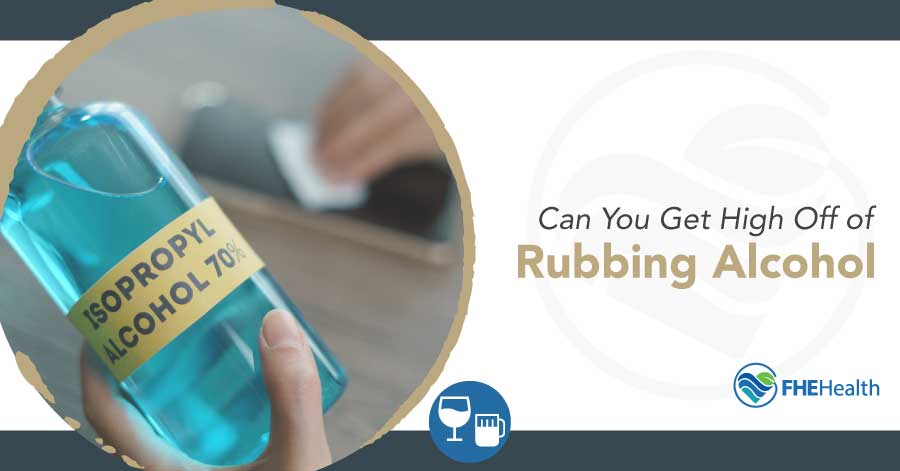
Poison Warning: If you have accidentally ingested rubbing alcohol, please stop reading and contact your local poison control center immediately. You can also call 911 for help.
Isopropyl alcohol, also known as rubbing alcohol, is a denatured type of alcohol that has a strong odor. It comes in different strengths, and because it has alcohol in its name, many people, including teenagers who might be looking for household highs, believe you can drink it, but this is not the case.
Denaturation Process
Rubbing alcohol is denatured, which means it’s altered to make it unfit for drinking. Rubbing alcohol contains toxic poisons and chemicals, which are added on purpose to deter people from trying to drink it.
The added chemicals in rubbing alcohol make it taste awful, have a potent smell and seem generally unappealing. Some people who abuse alcohol may attempt to drink if they think it’s all they can manage to obtain.
Can You Get Drunk Off Rubbing Alcohol?
The answer is yes, you can get drunk off rubbing alcohol, but the poisons added to it might kill you in the process.
Of course, all alcohols are potentially deadly if you drink enough of them, but because isopropyl alcohol is metabolized differently in your body from the type you find in drinkable alcohol like beer, wine or liquor, ingesting even a small amount of it can be fatal.






